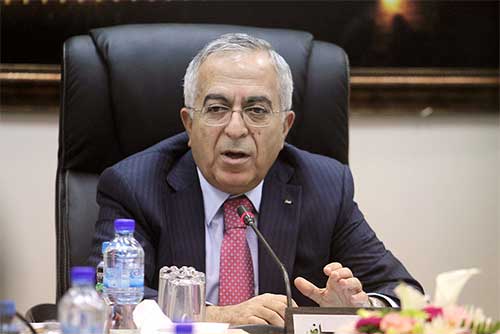http://www.jewishexponent.com/the-palestinians-and-their-state-of-failure

Secretary of State John Kerry launched a new round of Palestinian-Israeli diplomacy this summer. The naysayers said he would fail, yet the negotiations continue apace, with Kerry hoping to score a diplomatic victory by the end of April 2014.
Kerry, however, may be committing an unforced error made by the many other diplomats who failed before him. He’s throwing money at the question of a Palestinian state, without expending the effort needed to put an end to the poor governance and financial mismanagement that has dogged the Palestinians for decades.
As Kerry announced in May, there is a $4 billion dollar reward waiting for the Palestinians if they reach an agreement. More recently, during his speech at the American Task Force on Palestine , the White House’s Middle East Coordinator Phil Gordon noted that an urgent goal was “stabilizing the Palestinian Authority’s finances.” The US has already contributed $348 million this year, he said.
To be sure the Palestinians need the funds to help build a better future, but what they also need is better guidance on how to spend those funds. As I document in my new book, State of Failure: Yasser Arafat, Mahmoud Abbas and the Unmaking of the Palestinian State , peace-makers across multiple administrations now lament the fact that the Palestinians were never held to account for squandering billions of dollars in aid since the creation of the Palestinian Authority in 1994.
Ambassador Dennis Ross, who spearheaded the peace efforts for president Bill Clinton noted, “we should have been focused on the state-building enterprise…We didn’t really focus on that until, in effect, after the collapse of Oslo…” He now notes, for example, that business practices must change. “People need to get contracts based on a legitimate process, not based on favoritism,” he said.
Aaron David Miller, who worked closely with Ross, recounts that Washington often turned a blind eye to other abuses of power, so long as the Palestinians remained committed to the diplomatic track. “State security courts and human rights abuses? Terrible. But you’ve got to keep the peace process alive. Corruption? Terrible. But you’ve got to keep the peace process alive.” Miller laments that Washington’s approach was transactional, rather than transformational.
Elliot Abrams, who served as an advisor to George W. Bush, recalls that the problem of mismanagement and poor governance was well known to the administration, but he cedes that “on corruption, we never had a program. We did not have a five-point plan.”
As diplomats labored to placate Palestinian leaders with the goal of simply getting a peace deal done, it was the Palestinian street that began to demand reform. Remarkably, these demands coincided with the eruption of the Second Intifada in 2000. Even amidst the ongoing war with Israel, Palestinians strived to implement cleaner governance. For example, they worked to centralize Palestinian president Yasser Arafat’s many bank accounts. That was when the PA’s then-Finance Minister Salam Fayyad, hailed for his common sense reforms and institution building, came onto the scene.
Ross praised the efforts of reformist prime minister Salam Fayyad, who made sure the PA would “stop paying the security guys from paper bags in cash, and letting them skim off the top.”
And Ross was not alone. “Fayyadism,” a term coined by New York Times columnist Tom Friedman, steadily gained the confidence of the West. But tensions soon surfaced between Fayyad and Palestinian president Mahmoud Abbas, ultimately leading to the reformer’s ouster in April of this year.
Thanks in large part to Fayyad’s efforts, the Palestinian Authority functions better as a bureaucracy, but the reports of mismanagement and abuses of power continue to mount. A recent European Union audit, for example, revealed that the P.A. may have “misspent” $3.13 billion in financial aid between 2008 and 2012.
Mr. Abbas, meanwhile, is now four years past the end of his presidential term, with no elections in sight. Meanwhile, his government has quashed protests against him, and made criticism of him- in mainstream media and social media alike – an offense that could lead to jail time.
In other words, the Palestinian Authority appears to be suffering from the same endemic corruption and abuses of power that existed during the Arafat days. Today, administration officials continue to ignore the Palestinian struggle for good governance. In other words, Washington now appears only too willing to enter into another transactional relationship, at the expense of a transformational one.
Jonathan Schanzer is vice president for research at Foundation for Defense of Democracies and author of State of Failure: Yasser Arafat, Mahmoud Abbas and the Unmaking of the Palestinian State.









